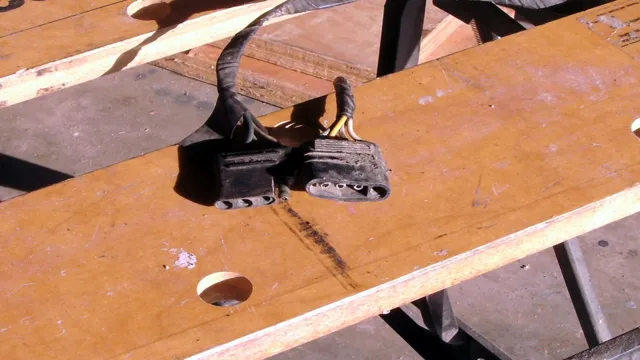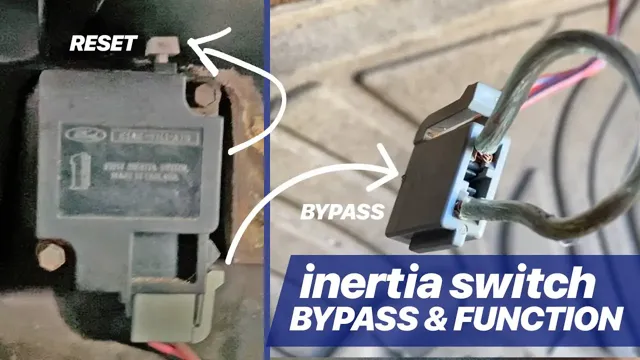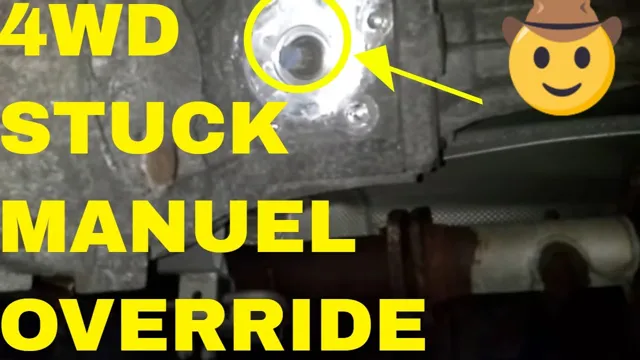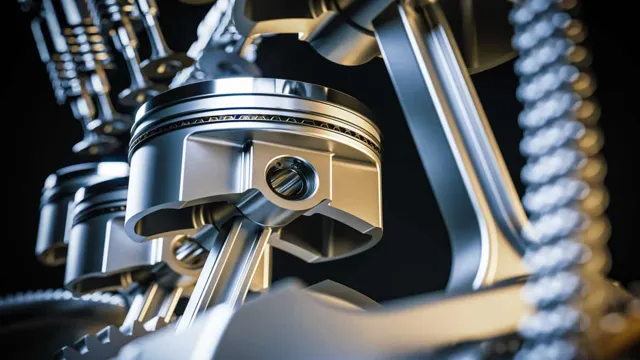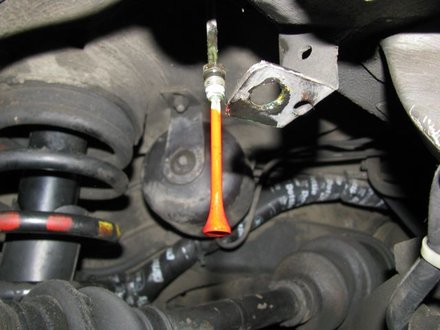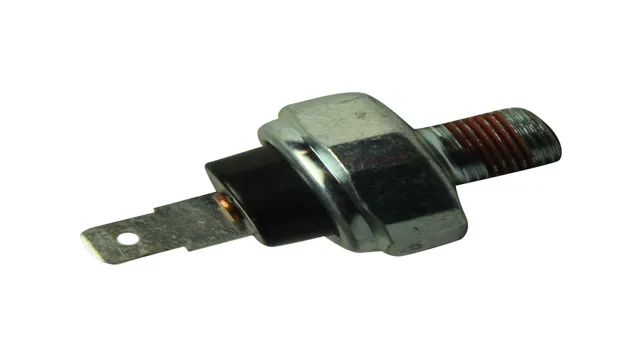Sparkle and Shine: The Ultimate Guide on How to Clean Trailer Connectors for Optimal Performance
Have you ever experienced frustration while trying to hook up your trailer, only to find that the connectors are dirty and corroded? It’s not just inconvenient – it’s also a safety hazard. Dirty connectors can cause problems, such as short circuits or a loss of power, which can lead to dangerous situations on the road. But, fear not, there’s a simple solution to this problem.
By cleaning your trailer connectors regularly, you can ensure a secure and reliable connection every time. In this blog post, we’ll give you some tips and tricks on how to clean trailer connectors effectively, so you can hit the road with confidence.
Why Clean Trailer Connectors
Cleaning your trailer connectors is an essential maintenance task that should not be overlooked. These connectors are exposed to dirt, dust, and water, which can lead to corrosion and poor electrical connections. Regular cleaning will help prevent these issues and maintain optimal performance.
To clean trailer connectors, start by disconnecting them from the towing vehicle. Use a wire brush or a small piece of sandpaper to remove any corrosion or debris from the metal contacts. Then, apply a small amount of electrical contact cleaner or rubbing alcohol to a cloth and use it to wipe down the contacts and surrounding areas.
Finally, plug the connectors back in and test for proper functioning. By following these simple steps regularly, you can ensure that the trailer connectors continue to work effectively and efficiently.
Improves Trailer Lighting Efficiency
Keeping your trailer connectors clean is crucial if you want to improve your trailer lighting efficiency. Due to exposure to harsh weather conditions, connectors can accumulate dust, dirt, and grime, causing them to malfunction. When the connectors are dirty, the electrical current is disrupted, causing dim lights, blown bulbs, or even complete failure of your lighting system.
By regularly cleaning your trailer connectors, you ensure a reliable connection that will last longer and work more efficiently, thereby reducing any safety risks on the road. Moreover, a clean trailer connector will also help improve your fuel economy as it ensures that the current is flowing uninterrupted, preventing energy wastage. Regular maintenance of trailer connectors is an essential aspect of trailer maintenance, providing longer-lasting components and helping to avoid costly repairs.
So, remember to clean your trailer connectors regularly and get the most out of your trailer’s lighting system!

Prevents Electrical Hazards
Trailer connectors are an essential component of your trailer’s electrical system and must be kept clean to prevent electrical hazards. When connectors are dirty or corroded, the electrical current may not flow efficiently, leading to voltage drops, overheating, and potential electrical fires. Regularly cleaning your trailer connectors with a wire brush, contact cleaner, or rubbing alcohol will ensure the connectors are free from dirt, grime, and other debris.
By preventing electrical hazards, you’ll be able to tow your trailer safely, knowing that your vehicle and passengers are protected. So, don’t forget to clean your trailer connectors regularly to ensure a safe and comfortable towing experience.
Materials Needed
Cleaning trailer connectors is an important task that should be done regularly to prevent corrosion and ensure a safe and reliable electrical connection. To get started, you’ll need a few materials. First, gather a can of contact cleaner, a small wire brush, and some dielectric grease.
These items are essential for removing dirt and grime from the connectors and restoring their functionality. Once you have your materials in place, start by disconnecting the trailer and vehicle. Spray contact cleaner onto the connectors and use the wire brush to scrub away any debris.
Once you’ve cleaned the connectors, apply a small amount of dielectric grease to protect and lubricate the connections. By following these simple steps, you can keep your trailer connectors in top condition and enjoy a hassle-free towing experience.
Cleaning Solution
One of the most important components of a thorough cleaning routine is having the right cleaning solution. To create a cleaning solution, you will need various materials, including a spray bottle, vinegar, baking soda, water, and dish soap. Each of these materials has its own unique cleaning properties.
Vinegar is great for removing tough stains and bacteria, while baking soda is ideal for eliminating odors. Water is necessary for diluting the cleaning solution, and dish soap will help to break down grease and grime. By combining these materials, you can create a powerful cleaning solution that can tackle even the toughest messes.
To create your cleaning solution, begin by mixing equal parts water and vinegar in a spray bottle. Add a tablespoon of baking soda and a few drops of dish soap to the mixture, then shake the bottle well to combine the ingredients. This powerful cleaning solution can be used on a variety of surfaces, including countertops, floors, and cabinets.
By using a cleaning solution made from natural ingredients, you can avoid the harsh chemicals found in many commercial cleaning products. Plus, this DIY cleaning solution is easy to make and costs just pennies per use. So the next time you need to clean your home, skip the store-bought products and whip up your own cleaning solution using these basic materials.
Small Brush or Cloth
When it comes to cleaning and maintaining various surfaces, having the right materials can make all the difference. One essential item for keeping things clean and looking their best is a small brush or cloth. These tools are particularly useful for hard-to-reach areas, intricate designs, or surfaces that require a gentle touch.
Whether you’re cleaning delicate fabrics, intricate machinery, or intricate art pieces, having a small brush or cloth on hand can help you get the job done efficiently and effectively. Plus, using these tools is a great way to prevent scratching or other damage that can occur with more abrasive cleaning methods. So, if you’re looking to up your cleaning game and keep your surfaces looking their best, be sure to add a small brush or cloth to your toolkit.
Protective Gloves
Protective gloves are essential for a wide range of tasks, from cleaning to industrial work. Choosing the right material for your gloves can ensure maximum protection and comfort. Some of the most common materials used for protective gloves include latex, nitrile, PVC, and neoprene.
Latex gloves are often the most affordable option, but they can cause allergies in some people. Nitrile gloves are more durable and resistant to chemicals, but they may not be as comfortable to wear. PVC gloves are often used for food handling or cleaning, but they may not be suitable for harsh chemicals or high temperature environments.
Neoprene gloves are ideal for industrial work as they offer excellent resistance to chemicals and abrasion. When choosing protective gloves, it’s important to consider the intended use and the potential hazards you may encounter. Always choose gloves that meet safety standards and provide adequate protection for the specific task at hand.
Steps to Clean Trailer Connectors
Cleaning trailer connectors is an important maintenance task that every trailer owner should know how to do. Corrosion and dirt buildup on trailer connectors can cause electrical issues, so it’s important to keep them clean. To begin, disconnect the trailer from the towing vehicle to avoid any electrical shock.
Then, inspect the connector for any visible signs of corrosion or dirt. If there is any, use a wire brush or sandpaper to gently clean off the affected areas. Don’t forget to clean the pins and sockets as well.
After cleaning, use a silicone spray or dielectric grease to protect the connectors from future corrosion. This will help keep your trailer’s electrical system in good condition, ensuring safe travels on the road. Remember to regularly check and clean your trailer connectors for optimal performance.
Step 1: Disconnect Trailer Connector
Trailer Connectors Cleaning trailer connectors is an essential aspect of trailer maintenance that every owner should take seriously. A clean connector ensures a consistent flow of electricity from the towing vehicle to the trailer, which is crucial for safety reasons. Step one of cleaning the trailer connector is to disconnect it from the towing vehicle to avoid getting shocked.
Once disconnected, inspect the connector for any visible signs of wear or damage. If there is damage, the connector may need to be replaced. Next, use a small wire brush to clean the connectors’ pins gently.
A wire brush will remove any dirt or rust that may hinder the flow of electricity. After cleaning, use a contact cleaner and a lint-free cloth to wipe the connector’s pins. A contact cleaner will eliminate any residual dirt and protect the connectors’ pins from corrosion.
Lastly, re-connect the connector to the towing vehicle, and test if everything is working correctly. By following these steps, you will ensure your trailer’s safety and ensure that you can enjoy hassle-free trips with your trailer.
Step 2: Inspect Connectors
When it comes to cleaning your trailer connectors, the first thing you should do is inspect them. This step is crucial because any damage or corrosion on the connectors can affect the overall performance of your trailer and even cause safety issues on the road. Take a close look at each connector and check for any signs of rust, dirt, or debris.
Use a flashlight if necessary to see clearly. If you notice any damage or corrosion, don’t worry. It’s common, especially if you live in an area with harsh weather conditions.
The good news is that cleaning and maintaining your connectors regularly can help prevent further damage and prolong the lifespan of your trailer. So, go ahead and visually inspect your connectors before moving on to the next step.
Step 3: Apply Cleaning Solution
When it comes to cleaning your trailer connectors, it’s important to use the right cleaning solution to ensure that they remain in their best working condition. Start by choosing a cleaning solution that’s specifically designed for electrical connections. You don’t want to use a harsh cleaner that could end up corroding or damaging the connectors.
Once you have your cleaning solution, apply it evenly to the connectors using a cloth or sponge. Be sure to clean both the male and female ends of the connectors, as well as any other exposed metal parts that may be susceptible to corrosion. Pay extra attention to any areas that may be particularly dirty or corroded, and be sure to apply the cleaning solution thoroughly.
With the right cleaning solution and a little bit of elbow grease, your trailer connectors will be looking and working like new in no time.
Step 4: Use Small Brush or Cloth
When it comes to cleaning your trailer connectors, using a small brush or cloth can really make a difference. After all, these tiny components can often get clogged up with dirt, debris, and other gunk from the road, and it’s important to make sure they’re all clean and functioning properly. Using a small brush or cloth helps you get into all the nooks and crannies of the connector, getting rid of any stray bits of dirt or debris that might be impeding proper contact with your vehicle.
Whether you’re using a soft-bristled brush or a microfiber cloth, simply gently scrubbing each pin and crevice can work wonders. And if you encounter any stubborn spots that won’t come off, a little bit of rubbing alcohol can often do the trick. By taking the time to clean and maintain your trailer connectors, you can ensure that you’re always ready for whatever adventure comes your way.
Step 5: Rinse and Dry Connectors
Trailer connectors can get quite dirty, especially after a long haul on the road. That’s why it’s important to clean them regularly to ensure they work properly. Once you’ve applied the cleaning solution and scrubbed away the grime, it’s time to rinse and dry the connectors.
Use a clean rag and water to rinse the solution off the connectors thoroughly, making sure to get all the nooks and crannies. After rinsing, use another clean rag to dry the connectors completely. Moisture left on the connectors can cause corrosion and damage, so this step is crucial.
Once all the connectors are dry, you’re good to go. Your trailer is now ready for its next adventure! Remember, it’s always better to clean your trailer connectors regularly than to deal with any issues that might arise because of neglect. So give your trailer the attention it deserves, and hit the road with confidence!
Additional Tips for Maintaining Trailer Connectors
Maintaining trailer connectors is essential to ensure that they function optimally for an extended period. Apart from cleaning trailer connectors regularly to eliminate corrosion and dirt, a few additional tips can help keep them in good condition. Firstly, inspect connectors regularly for any signs of wear and tear, and replace any damaged components as soon as possible.
Secondly, apply dielectric grease to all connector pins to prevent moisture from entering the connector and causing corrosion. Thirdly, make sure that connection points are tight to prevent any movement between the trailer and towing vehicle, which could lead to wire breakage. Fourthly, protect connectors from the weather elements using a weatherproof cover, or store the trailer indoors when it’s not in use.
By implementing these additional tips, trailer connectors’ maintenance will be much more manageable, ensuring that they continue to work efficiently and reliably for many years.
Regularly Check for Signs of Wear and Tear
Regularly maintaining trailer connectors is crucial in ensuring their effectiveness and longevity. One practical tip is to always check for signs of wear and tear. Over time, exposure to the elements and mechanical stress can cause connectors to become damaged or corroded.
This can translate into poor electrical connectivity and even complete failure of the trailers’ lights and brakes. To prevent this from happening, it’s important to inspect the connectors regularly for any visible damage or corrosion. Additionally, keeping them clean and dry can help prolong their lifespan.
Remember, a little bit of maintenance can go a long way in ensuring a smooth and safe towing experience. So, be sure to take a few minutes to check over your trailer connectors before heading out on your next adventure.
Keep Connectors Lubricated
Trailer connectors are an essential part of any towing setup, and it’s crucial to keep them maintained for optimal performance. One simple but often overlooked way to do this is by lubricating the connectors regularly. Over time, dirt, debris, and moisture can accumulate in the connectors and cause corrosion, which can result in a poor connection.
By applying a light coat of dielectric grease to the connectors, you can help prevent corrosion and keep them functioning properly. It’s a quick and easy task that can go a long way in ensuring a safe and smooth towing experience. Don’t let a faulty connector ruin your next road trip – keep them lubricated and in good condition to ensure a stress-free journey.
Clean Connectors After Every Use
Trailer Connector Maintenance: Keeping It Clean! One of the most important things you can do for your trailer’s electrical system is to keep the connectors clean. After every use, it’s important to remove any dirt, grime, or corrosion buildup from both the trailer and tow vehicle connectors. This ensures a secure and reliable electrical connection, preventing any potential damage or malfunction.
A simple way to clean these connectors is by using electrical contact cleaner and a soft-bristled brush. Once cleaned, apply a silicone-based lubricant to protect and prevent future corrosion. Additionally, inspect connectors regularly for any signs of damage or wear and replace them if necessary.
By taking the time to properly maintain your trailer connectors, you can ensure a safe and trouble-free towing experience.
Conclusion
In conclusion, keeping your trailer connectors clean is crucial for a safe and efficient towing experience. With these simple tips, you’ll be able to avoid those frustrating moments of connection failure. Remember, a little elbow grease and attention to detail can go a long way in this game of plug-and-play.
So get out there and scrub away, your connectors will thank you!”
FAQs
Why is it important to clean trailer connectors?
It is important to clean trailer connectors regularly to ensure proper functioning of the electric brakes, lights, and turn signals.
How often should trailer connectors be cleaned?
Trailer connectors should be cleaned at least once a year or more frequently if you frequently use your trailer.
What is the best way to clean trailer connectors?
The best way to clean trailer connectors is to use a contact cleaner and a small wire brush to remove any corrosion or dirt.
Can I use WD-40 to clean trailer connectors?
While WD-40 can help to remove some corrosion and dirt, it is not recommended for cleaning trailer connectors as it can leave behind a residue that can attract dust and debris. It is better to use a specialized contact cleaner.

